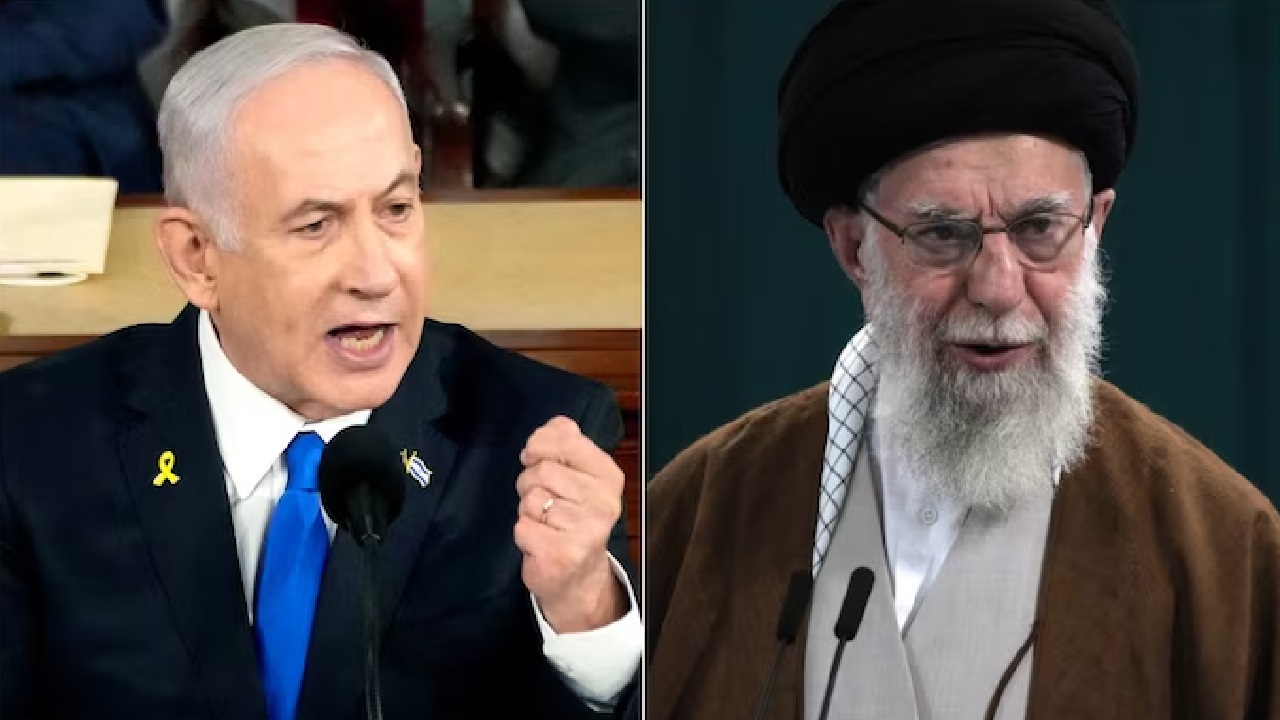Relentless Attacks Mark Day 8 of Conflict
Israel’s southern city of Beersheba came under renewed attack on Thursday as Iranian missiles struck a tech park, triggering fires near a Microsoft facility. This follows a deadly missile strike the previous day that hit a major hospital in the city, wounding over 240 people and sparking global alarm.
In response, Israeli warplanes intensified airstrikes on Iran, specifically targeting suspected nuclear facilities. Prime Minister Benjamin Netanyahu, in a forceful declaration, vowed that Israel would strike every known Iranian nuclear site. “We will not wait for anyone’s approval,” Netanyahu said, as his government accused Iran of deploying cluster munitions in its attacks.
How the War Unfolded So Far
The Israel-Iran conflict has now entered its eighth day, marked by intensifying military exchanges, civilian casualties, and international concern. The confrontation began with border skirmishes and cyberattacks, escalating into full-fledged missile strikes and targeted bombings.
The hospital attack in Beersheba and subsequent retaliation against Iranian nuclear research sites mark a dangerous turning point. Israel’s Defence Minister Israel Katz directly blamed Iranian Supreme Leader Ayatollah Ali Khamenei for the hospital strike, suggesting regime change may be part of Israel’s broader objective. Katz stated, “To accomplish our objectives, this man must not be allowed to remain in power.”
Washington’s Calculated Wait
The United States remains on the fence. In a statement read by White House Press Secretary Karoline Leavitt, President Donald Trump revealed he will decide within two weeks whether to militarily support Israel’s campaign against Iran. While emphasizing that diplomacy remains an option, Trump’s administration is reportedly evaluating a potential strike on Iran’s deeply buried Fordo uranium enrichment facility — a move that would mark a major escalation.
Meanwhile, Israeli officials remain confident the U.S. will act soon. Sources from within the Israeli government believe that with American involvement, the conflict could reach its strategic aims within weeks.
Global Reactions and Diplomatic Moves
The war has sparked worldwide reactions. In Geneva, foreign ministers from Britain, France, Germany, and the EU are scheduled to meet with Iran’s Foreign Minister Abbas Araqchi to seek a diplomatic off-ramp. British Foreign Minister David Lammy urged restraint: “Now is the time to put a stop to the grave scenes in the Middle East and prevent a regional escalation that would benefit no one.”
China has also stepped in, with President Xi Jinping urging Russian President Vladimir Putin to push for an “immediate ceasefire.” Xi emphasized that influential global powers must prevent further escalation, implicitly calling on the U.S. and Israel to reconsider their course.
Australia, alarmed by the developments, has suspended operations at its Tehran embassy and urged its diplomats and their families to evacuate. However, the Australian ambassador remains on the ground to coordinate conflict response.
Latest Military Developments
The Israel Defense Forces (IDF) confirmed that dozens of Iranian military targets were struck overnight. These include missile production facilities and key locations associated with Iran’s nuclear weapons R&D, such as the Spand headquarters in central Tehran.
In addition to targeting infrastructure, Israeli military officials accused Iran of using cluster munitions in a recent missile attack—an act likely to increase civilian casualties and further inflame tensions. Eight people were reportedly injured in today’s strike in Beersheba alone.
Iran, on its part, continues to launch missiles despite international condemnation, signaling that it, too, is prepared for prolonged conflict. The use of increasingly destructive weapons underscores both the desperation and the resolve on both sides.
The Brink of a Wider War
As the conflict enters a second week, the stakes are higher than ever. Israel’s determination to dismantle Iran’s nuclear infrastructure, coupled with Iran’s continued missile offensives, presents a scenario ripe for a broader regional war. Netanyahu’s uncompromising stance and Trump’s looming decision only add more volatility to an already explosive situation.
The world must recognize that without swift diplomatic intervention, this conflict could spiral into a catastrophe far beyond the Middle East. While self-defence is Israel’s right, and Iran’s aggression is undeniable, restraint and negotiation are the only paths that will prevent mass devastation. The coming two weeks may determine not just the future of this war—but the direction of the global order.
(With agency inputs)








